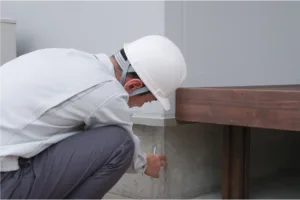Common Home Buying Mistakes to Avoid

Buying a home is an exciting milestone, but it’s also a complex process with a lot of room for error. Whether you’re a first-time buyer or a seasoned homeowner, avoid these common home buying mistakes and you can save you time, money, and stress in your home buying journey.
Skipping Pre-Approval
One of the biggest mistakes buyers make is house hunting before getting pre-approved for a mortgage. Pre-approval gives you a clear idea of how much financing you can get and shows sellers you’re a serious buyer. Without it, you might waste time looking at homes out of your price range or lose out to buyers who come prepared with pre-approval letters.
Underestimating the Total Cost of Homeownership
Many buyers focus solely on the purchase price and mortgage payments, overlooking other expenses. Property taxes, insurance, utilities, maintenance, and potential HOA fees can significantly impact your monthly budget. Factor in these costs when determining how much home you can afford.
Emptying Your Savings
While it’s tempting to put everything you have into your down payment, depleting your savings is risky. Unexpected repairs, job loss, or other financial emergencies can arise. Always keep an emergency fund separate from your home buying budget.
Skimping on the Home Inspection
A thorough home inspection is crucial, even for new constructions. Some buyers try to save money by skipping this step or opting for a less comprehensive inspection. This can lead to expensive surprises down the road. Invest in a quality inspection and attend it personally to understand potential issues.
Falling in Love with the First Home You See
It’s easy to get emotionally attached to a property, especially if it’s your first time buying. But making an offer on the first home you view can lead to buyer’s remorse. Visit multiple properties to get a feel for the market and what’s available in your price range.
Not Researching the Neighborhood
A house isn’t just a structure; it’s part of a community. Failing to research the neighborhood can lead to dissatisfaction later. Check crime rates, school quality, future development plans, and visit the area at different times of day to get a complete picture.
Making Large Purchases Before Closing
Opening new credit accounts or making large purchases before your mortgage closes can jeopardize your loan approval. Lenders recheck your credit before finalizing the mortgage, and new debts can change your debt-to-income ratio. Wait until after closing to buy new furniture or appliances.
By avoiding these common pitfalls, you’ll be better positioned to find a home that meets your needs and fits your budget. Remember, buying a home is not just a transaction; it’s a long-term investment in your future. Take the time to do it right, and you’ll reap the rewards for years to come.
- Previous
- Renovation vs. Move-in Ready Homes


